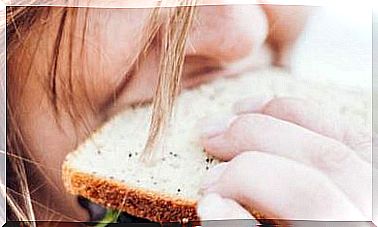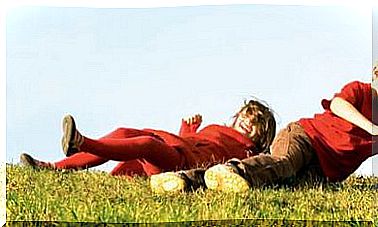Listening To Children: Their Voice Sets An Example
The UNICEF initiative has established Childhood Councils where the smallest citizens show us the way to a society in which they can actively participate.

” Even though we are children, you can trust us. We find it difficult for you to listen to us, and when you do, it seems that our proposals are not taken into account. We promise to continue thinking, participating and proposing ideas for the welfare of children, and thus improve the society in which we live ”.
This is how the children and adolescents of the State Meeting of Child and Adolescent Participation Councils expressed themselves , an annual initiative in which the groups that operate in some municipalities with the support of the UNICEF Child-Friendly Cities Program meet.
Including children in politics
His words show us that today a society cannot be considered truly democratic if it is not capable of integrating the voice of all its members into its organization and functioning without excluding anyone. Not even the little ones. Despite not having the right to vote, those under the age of eighteen are part of the community.
Children experience the consequences of decisions that adults make, often unilaterally, in the cities where they live, the families where they grow up, and the schools where they learn.
For this reason, the Convention on the Rights of the Child, approved in 1989 by the United Nations, points out the need for children to be heard in all matters that concern them, directly or through an appropriate body. It also establishes their right to freedom of expression and, more specifically, to seek, create and disseminate all kinds of information and ideas that may interest them.
However, the more than eight million small citizens who live in our country do not usually have the opportunity to participate in the family, educational and community spheres.
It is in our hands – as fathers, mothers, educators, teachers, representatives … – to lead a radical change in social relations that allows us to evolve from a patriarchal and adult-centered culture (which objectifies children by making them a simple property of adults) towards a world of more humane and egalitarian ties, which recognizes their right to self-determination, that is, to be themselves, direct their lives and participate in all decisions that affect them.
The Child Friendly Cities Program
This initiative, led for more than ten years by Unicef – with the collaboration, in each country, of various entities – is an example of a proposal that allows progress in this regard. It has been designed to support the promotion and application of children’s rights in towns and cities.
Through the Seal of Recognition of the Child-Friendly City, UNICEF recognizes and values the work carried out by governments and local entities in favor of children in their respective territories.
The “little ones” actively participate, as de facto citizens, in the Councils for Childhood and Adolescence, with freedom to express their points of view and the assurance that their opinions and recommendations will be taken seriously into account and, if possible, put into practice. practice in their city, their neighborhoods, their schools and their families.
Over the years, hundreds of experiences like this show that children ‘s participation not only brings benefits to children themselves :
- In addition to contributing to their personal and social development, by showing their capacities and generating self-confidence, decision-making processes improve and the results are enriched by their contributions, often different and creative.
- These participatory processes help protect children against abuse and, in general, against any action that violates their rights because they are given the opportunity to report them.
- It facilitates the acquisition of democratic values such as listening, dialogue, empathy and mutual understanding, and allows their implementation, thus forming better citizens.
- In a society that is not exactly characterized by the direct involvement of adult citizens in public affairs, but that every day demands more spaces to regain trust and build a sense of community, the participation of children can bring us a paradigm shift what do we need. Through it, adults can also begin to claim and exercise our right to active citizenship.
Policy lessons taught by children
When we hear their voice, children express themselves spontaneously, with a sincerity free of hypocrisy. Sometimes they show us a stark reality, but always with a point of optimism.
Their notions of equality and justice are often devoid of cynicism, apathy, and practical considerations, and their priorities may be very different from what we adults propose.
Let’s see, for example, how they express themselves about a problem that affects us all: the economic crisis that we are going through in recent years:
“My cousin’s parents lost their jobs and had to move to their grandmother’s house. Now, I give him my clothes when they are too small for me ”.
“When the crisis started, my father was fired and couldn’t find a job. My mother had been on the waiting list for eight months for hernia surgery. And there were a few months that we ran out of money because my father had not worked enough to receive unemployment. We had to ask Caritas and the Red Cross for help to be able to eat. My mother cried all the time because she felt bad, helpless like me. We couldn’t do anything ”.
“When my grandfather died, we did not have money to pay for the funeral and a wreath as he deserved. Because it had helped us a lot. He paid me for high school books and gave us things we needed ”.
Collectively, they propose small actions to solve problems in everyday life:
“We girls and boys could help our families more by saving energy and not asking for whims. In addition, we are committed to collaborating with associations that help others, to participate in acts of solidarity and to contribute to food banks ”.
By giving them the opportunity to participate, children and adolescents express a great need for autonomy and become aware of its importance in the development of responsibility :
“Families are afraid of letting us move around the city, even to go to school, because the media are very alarmist, especially television.”
They also offer numerous testimonies and proposals to improve the human quality of cities, get neighbors to know each other, promote coexistence, combat xenophobia and racism or actions as simple as “putting park benches in front of each other to be able to talk”.
Children recognize the influence of television images and the dangers of social media.
Another topic that is usually addressed in the groups is that of information and communication technologies, the dreaded ICT:
“Social networks are a reality in which we live daily, but we find ourselves outside of them legally because of our age. Our fathers and mothers do not know them more than we do due to lack of information and training and, sometimes, they do not put the necessary filters to protect us ”.
As we see, children and adolescents are not only citizens of the future, but especially of the present. They can take part in public life, give their opinions, make proposals and offer solutions to problems that arise.
Benefits of politics from childhood
The Childhood and Adolescence Councils are a privileged tool to promote their social participation and their presence in daily collective life from a proactive approach. In them they exercise their right to be authentic citizens, to be heard and taken into account in social life.
These participation groups are also an educational and inclusive tool. They promote solidarity and social awareness among children, as they work on behalf of other children and young people in unfavorable situations. And they contribute to strengthening essential aspects for their development, such as autonomy, decision-making capacity, responsibility and commitment.
In their meetings, the Childhood Councils usually receive the support of educators who accompany the processes of expression and participation based on an analysis of reality as perceived by children individually and in groups. If necessary, they complete their perception with some kind of exploration or investigation in the general population.
Among the educational benefits that have been pointed out in various studies, the following stand out:
- promoting relationships and social ties ;
- the development of reflection and a critical sense ;
- communicative learning : listening, empathy, expressing an opinion (for example, making presentations and various types of public calls that make children’s contributions visible) and respect for the point of view of others;
- the promotion of a proactive and entrepreneurial attitude, as well as responsibility, autonomy and self-control;
- the development of creativity, dream and imagination;
- and the ability to solve problems and manage conflicts in a non-violent way ;
- the increased motivation of children and adolescents;
- the ability to work in cohesive groups, with coordination and leadership;
- generating a feeling of community.
With initiatives like this we are contributing to a paradigm shift, in addition to ensuring that boys and girls stop being and see themselves as passive subjects to become actors and protagonists. They show us the way.









